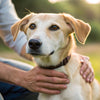Do Carrots Give Dogs Diarrhea? Understanding the Nutritional Impact and Safe Feeding Guidelines
- Houndsy
Table of Contents
- Introduction
- Nutritional Benefits of Carrots for Dogs
- Can Carrots Cause Diarrhea in Dogs?
- How to Safely Incorporate Carrots into Your Dog's Diet
- Recognizing and Managing Diarrhea in Dogs
- Conclusion
- FAQ
Introduction
As dog lovers, we are always on the lookout for healthy and tasty treats for our furry companions. One popular choice that often finds its way into our shopping carts is carrots. These vibrant vegetables are not only nutritious for us but are also touted as a healthy snack for dogs. However, a common concern among pet owners is whether carrots can lead to gastrointestinal issues, particularly diarrhea.
Did you know that a sudden change in diet, including the introduction of new vegetables like carrots, can impact your dog’s digestive system? According to recent studies, many dogs can digest carrots without issues, but some may experience diarrhea if they consume too many too quickly. By the end of this post, we aim to provide clarity on the question: do carrots give dogs diarrhea? We will explore the nutritional benefits of carrots, the potential risks, and how to safely incorporate them into your dog's diet.
We'll also address how to recognize and manage any digestive issues that may arise from feeding your dog carrots. So, as we dive into this topic, we encourage you to reflect on your own pet feeding routines and consider how you can enhance your dog's diet while ensuring their health and well-being.
Nutritional Benefits of Carrots for Dogs
Rich in Vitamins and Nutrients
Carrots are an excellent source of several essential vitamins and nutrients that can benefit your dog's health. Here are some key components:
- Beta-Carotene: This antioxidant converts to vitamin A in the body, which is vital for maintaining healthy vision, immune function, and skin health.
- Fiber: Carrots are high in dietary fiber, which can support digestive health and regularity.
- Low in Calories: Carrots are a low-calorie snack, making them a perfect treat for dogs on a weight management plan.
These nutrients not only contribute to your dog's overall health but can also enhance their coat condition and energy levels.
Dental Health Benefits
Chewing on carrots can promote dental health. The crunchy texture helps to scrape away plaque and tartar buildup on your dog's teeth, contributing to better oral hygiene. This natural dental chewer can be especially beneficial for dogs that resist tooth brushing.
Can Carrots Cause Diarrhea in Dogs?
The Fiber Factor
While carrots are packed with fiber, introducing them too quickly into your dog's diet can lead to digestive upset. Dogs that are not used to high-fiber diets may experience diarrhea if they consume too many carrots at once. The sudden increase in fiber can overwhelm your dog's digestive system, leading to gas, bloating, and loose stools.
Individual Sensitivities
Just as humans can have different reactions to certain foods, so can dogs. Some dogs may have sensitivities or allergies to specific vegetables, including carrots. Symptoms may include:
- Vomiting
- Diarrhea
- Itchy skin
If your dog shows any of these signs after consuming carrots, it’s essential to discontinue feeding them and consult your veterinarian.
Size and Preparation Matter
The way you prepare and serve carrots can also impact whether they cause gastrointestinal issues. Large pieces of raw carrots can pose choking hazards or cause blockages, especially in smaller breeds. It’s advisable to cut carrots into manageable, bite-sized pieces.
Additionally, while raw carrots are safe, cooking them (steaming or boiling) can make them easier to digest. Cooked carrots can also enhance the absorption of beta-carotene and other nutrients.
How to Safely Incorporate Carrots into Your Dog's Diet
Start Slow
If you are introducing carrots to your dog’s diet, start with small amounts. Begin with a few carrot slices or sticks to observe how your dog responds. Monitor for any signs of digestive distress, like diarrhea or excessive gas, before increasing the serving size.
Optimal Serving Sizes
The appropriate amount of carrots can depend on your dog's size and dietary needs. Here’s a simple guideline to consider:
- Small Dogs (10-20 lbs): 1-2 carrot slices
- Medium Dogs (21-50 lbs): 3-4 slices
- Large Dogs (51-90 lbs): 5-6 slices
- Extra-Large Dogs (91+ lbs): 1 whole baby carrot or a handful of slices
Remember that treats, including carrots, should not exceed 10% of your dog’s total daily caloric intake.
Creative Ways to Serve Carrots
To keep your dog excited about their carrot treats, consider the following serving ideas:
- Raw or Cooked: Depending on your dog’s preference, you can serve carrots raw or lightly cooked.
- Grated: Grate raw carrots and mix them into your dog’s regular food for a tasty boost.
- Frozen Treats: Freeze carrot slices for a refreshing treat, especially in warm weather. Ensure the pieces are small enough to avoid choking.
- Kibble Dispenser: For a fun feeding experience, consider using a kibble dispenser that allows you to incorporate carrots into your dog's feeding routine.
Recognizing and Managing Diarrhea in Dogs
Signs of Diarrhea
If your dog experiences diarrhea, it’s crucial to monitor their condition closely. Common signs include:
- Loose or watery stools
- Increased frequency of bowel movements
- Signs of discomfort or distress (whining, pacing)
When to Consult a Veterinarian
While occasional diarrhea may not be serious, you should consult your veterinarian if your dog exhibits any of the following symptoms:
- Diarrhea lasting more than 24 hours
- Presence of blood in the stool
- Vomiting
- Lethargy or lack of appetite
- Signs of dehydration (dry gums, excessive thirst)
Dietary Adjustments
If your dog does experience diarrhea after eating carrots, consider temporarily switching to a bland diet. Foods such as boiled chicken and plain rice can help settle your dog's stomach. Gradually reintroduce their regular diet, monitoring for any adverse reactions.
Conclusion
In conclusion, carrots can be a healthy and enjoyable treat for most dogs when introduced properly. Their nutritional benefits, including vitamins and fiber, can enhance your dog's diet and support their overall health. However, it's essential to be aware of individual sensitivities and to introduce new foods gradually to avoid gastrointestinal upset.
As responsible pet parents, we must balance our dogs' dietary needs while ensuring they enjoy a variety of safe treats. If you have any concerns about your dog’s diet or health, consulting with your veterinarian is always the best course of action.
Now that you know more about the potential effects of carrots on your dog’s digestive health, why not enhance your dog feeding experience with the Houndsy Kibble Dispenser? Designed for convenience and style, it ensures consistent portions while complementing your modern home decor. Order now to elevate your everyday dog feeding routine! Explore the Houndsy Kibble Dispenser here.
FAQ
1. Can all dogs eat carrots?
Most dogs can safely eat carrots, but some may experience digestive issues. Always start with small amounts and monitor your dog's response.
2. How many carrots can I give my dog?
The amount varies by size, but generally, treats should not exceed 10% of your dog’s daily caloric intake. Start with a few slices and adjust based on your dog's tolerance.
3. What should I do if my dog has diarrhea after eating carrots?
If your dog experiences diarrhea, stop feeding carrots and monitor their condition. If symptoms persist for more than 24 hours, consult your veterinarian.
4. Are cooked carrots better for dogs than raw?
Cooking carrots can make them easier to digest and may enhance nutrient absorption. However, both raw and cooked carrots can be healthy options.
5. Can carrots help with dog diarrhea?
In some cases, the fiber in carrots can help firm up stools. However, introduce them gradually to avoid causing digestive upset. Always consult a veterinarian for persistent diarrhea issues.









